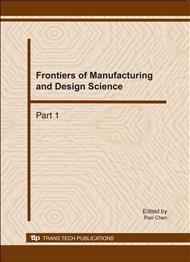p.2186
p.2191
p.2195
p.2199
p.2203
p.2208
p.2213
p.2219
p.2224
The Development of High Strength Hull Steel Plate FH40
Abstract:
High strength hull structural steel plate FH40 has been successfully developed by a 3500mm plate production line. Low-carbon micro-alloying niobium elements and TMCP (thermo-mechanical controlled processing) were employed to refine the grains and improve mechanical properties. This paper investigated the effects of TMCP process on the microstructure and mechanical properties of the rolled FH40 plate. Results indicate that the treatment could significantly improve the mechanical strength and impact toughness of the steel and the impact ductility was further enhanced after strain aging. The properties of plates remarkably satisfied with the requirements of the national standard of china and rules requirements by shipping classification associations.
Info:
Periodical:
Pages:
2203-2207
Citation:
Online since:
December 2010
Authors:
Keywords:
Price:
Сopyright:
© 2011 Trans Tech Publications Ltd. All Rights Reserved
Share:
Citation:


